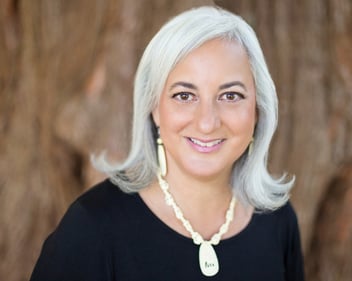For Mat Kesting, CEO/Creative Director of the Adelaide Film Festival, the thing that makes for an exciting new voice in film is also what takes a film/TV review from good to great: a fresh perspective. In addition to outlining what a film or TV series is about and assessing its execution, a stand-out review provides, as Mat says, “a perspective about the work that is not otherwise evident.” Great to keep in mind as your work on your entry for our Film/TV Series Review Competition!
Read on to learn how you can add your own point of view to your review, get more tips for your entry, discover what it takes to be a film festival director, and more!

You’re the CEO/Creative Director of the Adelaide Film Festival. What has your career journey been thus far, and what does directing a film festival entail?
I fell in love with cinema at a young age but never thought it would become my career. In all honesty, I didn’t really know what I wanted to do when I was at high school and felt torn between the arts and sciences. I ended up taking a couple of gap years and went travelling; I arrived at thinking journalism was to be my vocation. Returning to Australia, I ended up studying media and took a few cinema subjects on the side for the love of it. I volunteered on film festivals for fun and found I’ve been pulled deeper and deeper into the fold ever since.
Directing a film festival requires a lot of energy! The program and curation is at the heart of what we do, but success is also a function of the skill and passion of the team in building relationships, raising funds and connecting with audiences. If all these elements were strings in a musical instrument, it is my job to make sure they are in tune.
AFF Youth Online is happening right now! What kinds of work does it include, and what do those submissions tell you about the future of filmmaking?
AFF Youth is a new program offering that was intended to take place alongside our last festival in October 2020. However, thanks to COVID, it has been postponed twice and has been reshaped as an online screening program and series of skills development oriented physical activities. The program comprises feature fiction, documentary, and short films from all over the world. There’s also work by young filmmakers from around the globe and a showcase of shorts by local high school students. The original presentation included VR presentations and numerous meet-the-filmmaker opportunities.
What I love about working with young people is there is often little preconception about the world and this leads to new ways of understanding things. In a macro sense, I feel a responsibility to support and encourage those important perspectives since this will help shape the future of humanity. We often see these fresh perspectives on the world reflected in the films that are submitted but most immediately we see it in young people’s reflections and written criticism of the films. What is certain is there is an exciting diversity of stories being submitted and the artform of cinema continues to be a powerful and immersive driver of understanding and learning.
A review is an art form in and of itself. What are some of the key elements that make a film/TV series review stand out?
A useful review is one that helps to contextualise a work and gauge its success of execution. Personally, I like to make up my own mind and often find reading reviews after viewing the work more interesting, and the reviews that stand out are ones that offer a perspective about the work that is not otherwise evident. It’s always great to discover more about the background to a work (making of, story development, etc), and a good review will weave this into the critical reflection.
For our competition, writers can choose to either review a film or a TV series; what advice do you have for approaching and reviewing these different mediums?
Audiences engage with TV series and feature films differently due to their inherent presentation differences. Television series, for example, offer more time and space for writers to tell stories over longer and episodic narrative arcs, giving the opportunity to create a story world that often centres around more key characters than in feature films, which characteristically dive in deeply and quickly. While TV series have enjoyed a recent renaissance, TV has often been perceived to be the “pulp” or “paperback” version of moving image art. So from a reviewer’s perspective, I think these aspects would need to be considered.
What tips do you have for our writers on choosing which film or series to review?
Start with a film or series you know or care about or a work that deals with a topic or theme you have knowledge of. If you’re passionate about a work, you’ll enjoy the process more too!





